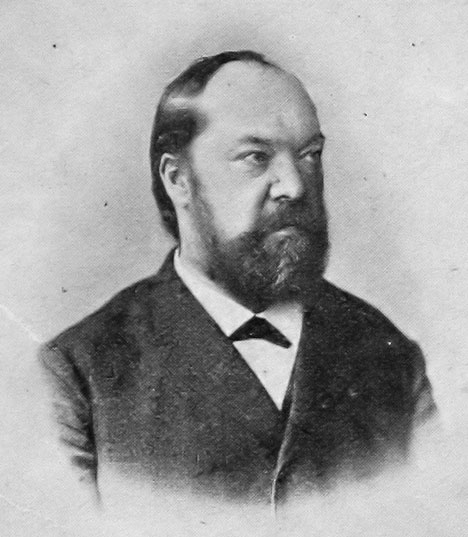- Eugen Richter
Infobox_Politician
name = Eugen Richter

width = 200px
height = 100px
caption =
birth_date = birth date|1838|7|30|mf=y
birth_place =Düsseldorf
residence =
death_date = death date and age|1906|3|10|1838|7|30|mf=y
death_place = Lichterfelde (Berlin)
office = Reichstag
term_start = 1867
term_end = 1871
constituency =
office2 = Reichstag
term_start2 = 1871
term_end2 = 1874
constituency2 = Schwarzburg-Rudolstadt
office3= Reichstag
term_start3 = 1874
term_end3 = 1906
constituency3 = Hagen-Schwelm
party = Progress Party Freeminded Party Freeminded People's Party
religion =Protestantism
occupation =Journalist ,Jurist
majority =
spouse =
children =Eugen Richter (
Düsseldorf ,July 30 ,1838 -March 10 ,1906 ) was a Germanpolitician andjournalist .Career
Born as the son of a combat medic, Richter attended the
Gymnasium in his home town of Düsseldorf. Since 1856, he studied Law and Economics at the Universities ofBonn , Berlin andHeidelberg , that he finished with a law degree in 1859. In those years Richter became a strong advocat of free trade, market economy andRechtsstaat , views he hold for all his life.In 1859, Richter became a civil servant in judiciary. His liberal views caused some trouble with the prussian bureaucracy several times.Richter achieved renown for his essay "Über die Freiheit des Schankgewerbes" (On the liberty of the tavern trade). The "Magdeburger Spukgeschichte" of 1862 brought in a disciplinary procedure. However it was printed in the "Niederrheinischen Volkszeitung" and in the "Magdeburger Zeitung".In 1864 he was elected the mayor of Neuwied, but the election result was not confirmed by the president of the provincial government. After that, Richter left the civil service and fully entered into parliament and journalism. He became a parliamentary correspondent of the "Elberfelder Zeitung" to Berlin and established thus also political contacts. In 1867 Richter entered the Reichstag as a member of the Left liberals, and since 1869 he was also a member of the Prussian Lower House. In response to the
Anti-Socialist Laws passed in 1878 banning the Social Democrat Party Richter said: "I fear Social-Democracy more under this law than without it". [W. H. Dawson, "Bismarck and State Socialism. An Exposition of the Social and Economic Legislation of Germany since 1870" (London: Swan Sonnenschein & Co., 1891), p. 44.] Due to fears that Bismarck was going to introduce a tobacco monopoly Richter unsuccessfully sought to persuade the Reichstag to pass a resolution condemning such a monopoly as "economically, financially, and politically unjustifiable". [Dawson, pp. 64-65.] When Bismarck proposed a system of social insurance paid by the state Richter denounced them as "not Socialistic, but Communistic". [A. J. P. Taylor, "Bismarck. The Man and the Statesman" (London: Hamish Hamilton, 1955), p. 202.]He was the most influential leader of the
German Progress Party (Deutsche Fortschrittspartei), since 1884 of theGerman Freeminded Party (Deutsche Freisinnige Partei), and since 1893 of the Freeminded People's Party (Freisinnige Volkspartei). Beside that he was one of the greatest critics of the policy ofOtto von Bismarck as well as the National Liberal Party and the Social Democrats. From 1885 to 1904 he was the chief editor of the liberal newspaper "Freisinnige Zeitung".Notes
Further reading
*cite journal|author=
Ralph Raico |title=Eugen Richter and late German Manchester liberalism: A reevaluation|year=1990|journal=The Review of Austrian Economics|volume=4|issue=1|pages=3–25|doi=10.1007/BF02426362ee also
*
Liberalism in Germany External links
* [http://www.econlib.org/library/YPDBooks/Richter/rchtPSF0.html Book "Pictures of the Socialistic Future"] (1891) online and biographical remarks, by David M. Hart.
Wikimedia Foundation. 2010.
